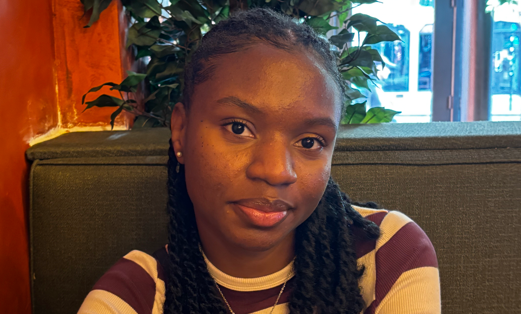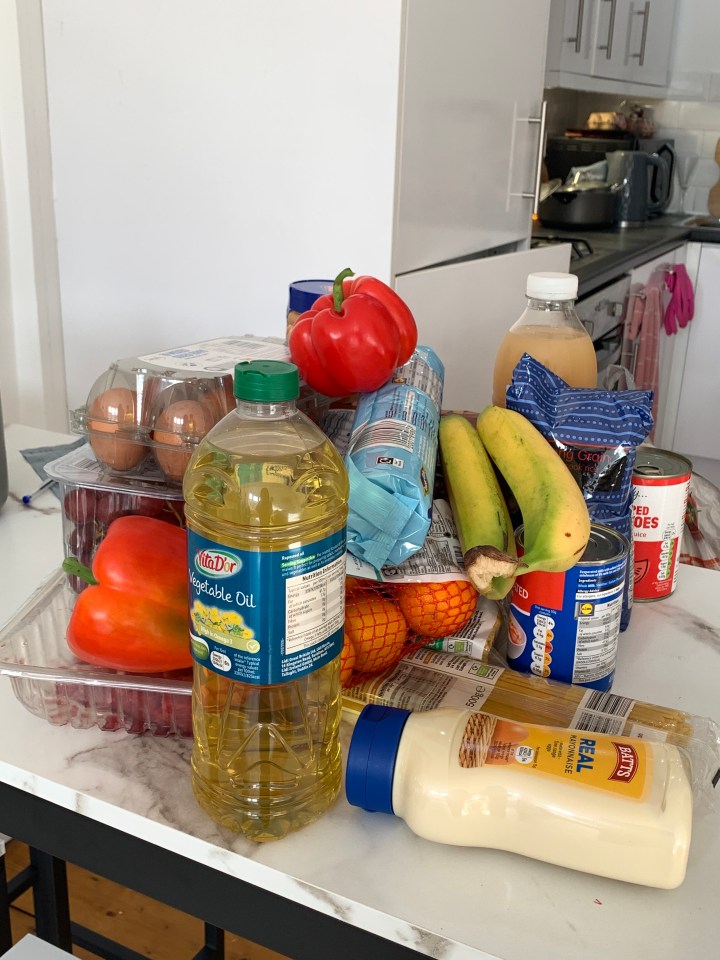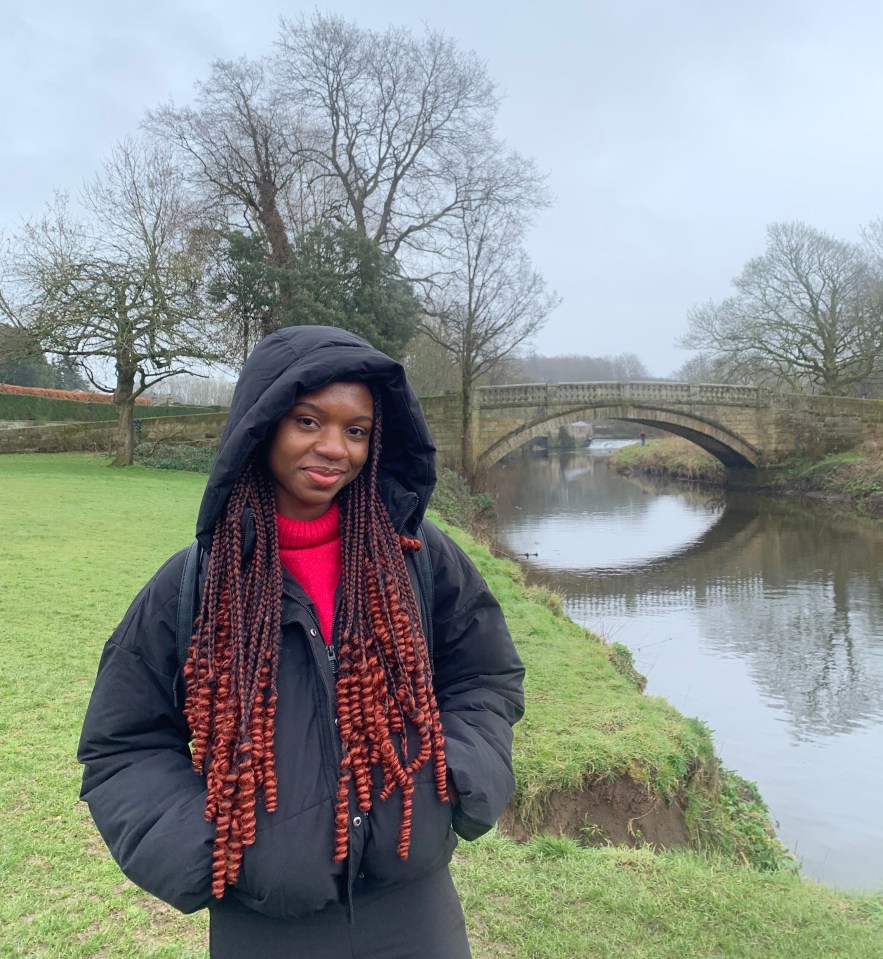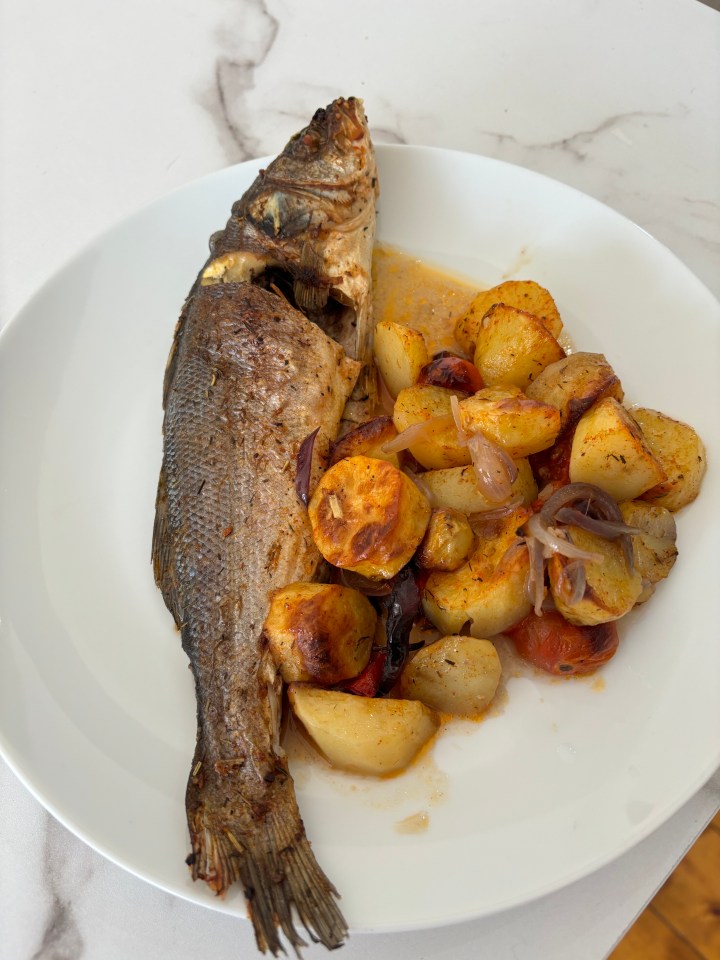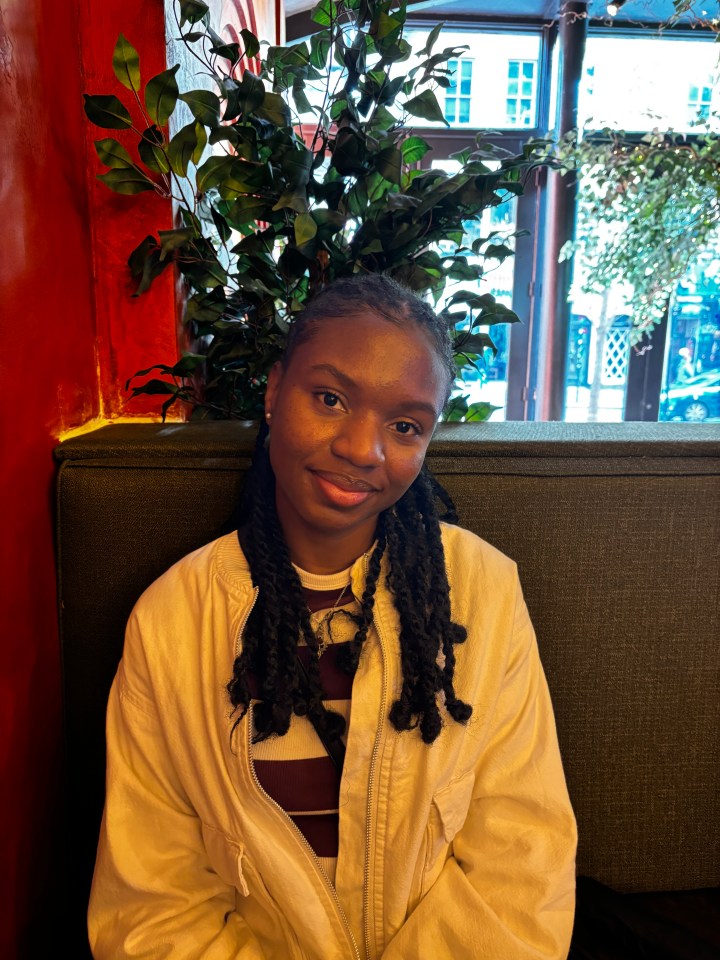SAVING £10,000 in a year on a salary of £21,000 sounds impossible – but that’s exactly what Pascaline Kelechi has managed to do.
She reveals how she tricked her brain into saving the cash – and how eight bank accounts, including a sinking fund, were the key to her success.
The 25-year-old manufacturing technician, who is originally from Nigeria and came to the UK to study Biomedical Sciences, first embarked on the money-saving mission after graduating from university in 2023 while living in Glasgow.
In 14 months, she saved a staggering £9,800, despite earning £21,000 a year, by putting away almost half of her wages each month.
At the time, Pascaline’s yearly salary left her with about £1,500 of take-home pay.
She spent £800 on rent and bills for a two-bed flat, which she shared with her housemate, leaving her with £700 a month, most of which she squirrelled away.
She told The Sun: “I was tired of living from paycheck to paycheck.
“Even just one single bill threw me off the entire month, and I wanted more security.”
With no family close by to rely on for financial support, she knew she had to figure out how to build up her savings.
“Growing up, I was taught to always have something for emergencies in case something did happen,” she says.
“But it was really scary knowing that if something did come up I wouldn’t have someone to ask for a loan.”
She admitted: “It felt impossible when I first started – I thought there’s no way this is possible at all.
A typical monthly budget for Pascaline
PASCALINE shared a typical monthly budget with us:
Income:
£1,500
Outgoings:
- Rent – £475
- Electricity – £50
- WiFi – £15
- Council tax – £166
- Phone bill – £9
- Groceries – £100
- Streaming – £20
- Bus/train pass – £61.80
- Going out – £50
- Savings – £755
- Cash for emergencies – £50
- Hair cut – £50
- Graduation dress (first of three instalments) – £15
“When you don’t save at all, you think you can’t actually do this. But it’s more about the mindset.”
Of course, she admits she likely wouldn’t have been able to save so much if she didn’t live in such a cheap area.
But there’s still plenty of savings tricks she had to rely on, and she had to be strict with her money.
‘I tricked my brain’
She says one part of her budgeting system, in particular, really helped her save the most cash.
Pascaline would put between £750 to £800 of her money into a savings account every month straight after paying all her bills.
It meant she didn’t have the money sitting there in her current account ready to spend, and she would have to move it out when she wanted to pay for something.
“I was tricking my brain in a way,” she said. “I’m thinking, the money is over there, so I can’t actually see it, and it’s not there anymore.”
The graduate says she counted putting money into her savings as part of her monthly budget.
Then, if she needed the money to buy something urgently, she could take it out as and when.
The ‘savings potting’ technique
Spreading your cash between different accounts wouldn’t be for everyone, but for Pascaline, it helps her manage her money.
She has a whopping eight accounts open – each with a particular purpose.
This is a method called “savings potting” – where you open lots of different pots for your money, and allocate a certain amount of money for each one, depending on what you need the pot for.
They are:
- A main account that her salary goes into
- Fixed expenses – bills and subscriptions
- Rent, food and shared costs with her housemate
- Home maintenance and personal care
- Spending/’fun’ money
- Sinking funds, such as birthdays
- Short-term savings – holidays, expensive purchases
- Long-term savings – emergency fund, house deposit
The manufacturing technician said she would create sinking funds -setting aside a little bit of cash each month for a specific expense, such as birthdays.
It’s worth remembering that having multiple accounts – especially those with large credit limits – can affect your credit score, so remember to consider this before you try this method.
Some banks, such as Monzo, offer pots so you can manage your money within one bank account.
I banned myself from Apple Pay
Saving hundreds of pounds a month meant Pascaline had to think through every single purchase carefully.
She even de-linked her Apple Pay from her bank card so she would need to get her physical card out to pay for things.
She would also delete her “saved card” from apps and websites like Uber Eats, ASOS and Amazon – so again she’d need to get up to get her card if she really wanted something.
‘I spent far too much on clothes’
The 25-year-old also decided to cut back on spending that wasn’t essential to help her hit her savings goals.
When she was at university, she admitted she’d splurged on shopping at times.
She says she’d overspend on “lots of clothes I didn’t need and going out a lot more than I should have”.
She says: “I’d see a new shirt or a new jacket and I’d want to get it.
“I look back now and think if I had been saving at that time, I wouldn’t have been in the situation I was at the end of uni.”
Now she tries to think about a purchase for 48 hours before making it if it’s non-essential.
“I put it in my shopping cart and sleep on it,” she said.
“But most times I sleep on it and I wake up the next day and think actually I don’t need this.”
She said that although you can sell stuff on later, you’ll very rarely get back the value you paid for it, so it’s best not to buy in the first place.
When it came to spending on food, she knew she had to cut down on takeaways first.
She says she would try to only get a takeaway once a month, but the rest of the time she’d cook at home.
The trick, she says, is to batch cook when you have the energy so you don’t fall into the trap of ordering a takeaway when you’re too tired or busy to make dinner.
Pascaline would try to batch cook at the weekend or during the day if she was free, even if she wasn’t hungry.
She could then pop her prepped meals into the fridge for later.
Another cost Pascaline cut back on heavily was socialising.
She budgeted herself about £50 to £80 a month for social events, meaning she could go out about once a week.
She would try to go to events that didn’t cost too much money, such as going to the park or a potluck party – which is where everyone brings a dish to a social gathering, like a BBQ, to save on food costs
Pascaline also gave up drinking alcohol partly because of the cost.
How YOU can save on a low income, according to a consumer finance expert
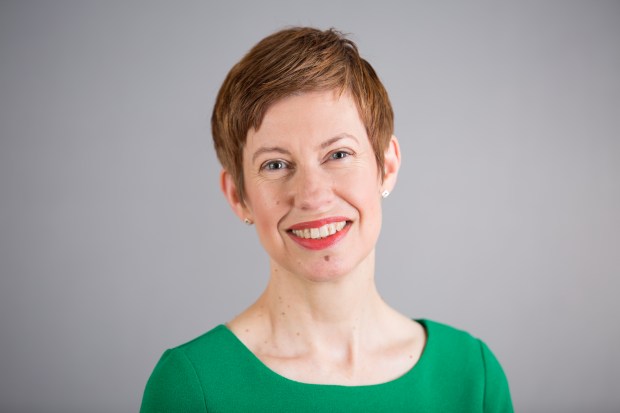
Sarah Pennells is a consumer finance specialist at investment company Royal London. She says saving can feel daunting if you’re on a low income, but there’s small things you can do…
Set up a standing order
A simple starting point is setting up a standing order to move a small amount into a savings account on payday. Think of this as ‘paying yourself first’.
With a standing order you’re in charge of how much you save each month and which day the money leaves your bank account.
Start small if you’re worried you can’t afford much. Even £5 a week adds up over time, and with interest rates still relatively high, your savings could grow more than you expect.
Save what you don’t spend
If you prefer, you can also save what you don’t spend.
For example, if you budget £30 on food a week but only spend £25, consider transferring the remaining £5 into your savings account.
Keep your savings separate
Keeping your money in a separate savings account can also help to reduce the temptation to spend it.
You don’t want to lock the money away, but if you’re the kind of person who’s tempted by impulse buys, make it a bit harder to get at your savings.
Take advantage of cashback apps and reward schemes
While spending using a wallet on your phone makes it easier to spend money without thinking, it also opens up new ways to save.
Cashback and rewards apps, or supermarket loyalty schemes offer money back on everyday purchases.
Many banking apps now offer round up features – so if you spend £10.50, it’ll move 50p into a savings pot.
Review your subscriptions
It’s also worth reviewing subscriptions every few months.
Many people forget about unused streaming services, apps, or memberships, and a regular audit can free up cash without affecting your lifestyle.
The same principle can also be applied to essential services, such as broadband and mobile phone packages.
Comparing what you’re paying for with what you’re using may show you’re paying more than you need to.
For instance, you might be paying for broadband speeds you don’t use, or you could get a refund from your energy supplier if you’re hundreds of pounds in credit.
Earn extra cash
Consider whether you can also make money through your hobbies.
If you love dogs, then apps like Rover pay you to dog sit or walk. Babysitting platforms offer similar opportunities.
Make use of what’s in your house – if you’ve got old clothes, shoes, books or furniture that you no longer need, then consider selling them on apps like eBay, Vinted or Depop.
Team up with friends
You can also team up with friends to share rarely used items like lawn mowers, carpet cleaners or various other tools.
You could even split suitcases, tents and fancier clothes to save money.
‘It was hard to turn down holidays with my friends’
Of course, saving this much away won’t be for everyone, and Pascaline admits it wasn’t easy.
She says: “There would be times my friends would suggest big holidays and I’d have to say ‘I cannot afford to do this’.
“I’ve never felt judged by them, but I didn’t feel good about the situation.
“My friends did understand, and we did a lot of day trips, getting the bus somewhere and seeing tourist attractions.”
She said socialising was one of the things she had to cut down on a lot and not spend much money on.
“I was very much trying to meet my savings goal,” she said.
“Looking back, I don’t regret any of my decisions. I had a great time, and I still had a lot of fun as well.”
Pascaline said the experience also helped her to realise there are plenty of things you can do without spending a lot of money.
“People would say to me, ‘What, how are you surviving, how can you do anything?’.
“But a lot of people are on low wages, like I was. Some people may be on higher wages, but they’re living in an expensive city and still don’t have much money left.”
Her savings mean she’s been able to pay for her visa, moving house, and even a couple of holidays.
She says her visa and national insurance cost her about £2,500 and she spent £1,200 during her house move.
Pascaline has now got a new job that earns her £29,000 a year, but she’s still using all the saving tricks she learned.
Her goal is to save up £30,000 by 2030.
She says she doesn’t want to “hoard every penny”, but she wants to keep up with her good habits.
“I’m living more freely now than if I were just waiting for my paycheck to arrive,” she said.
She’s getting married this year and has budgeted under £4,000 for a small, intimate wedding, and she also wants to get a mortgage with her partner.
For that, she thinks she will need a deposit of between £10,000 to £15,000.
More ways you can save on a low income
The Sun has also spoken to several experts to get all their tips on saving if you’re not earning very much.
Here’s what they said…
Use the 1% rule
This one comes from Rajan Lakhani, personal finance expert and head of money at Plum.
He says if you’re about to make a big purchase, you should stop to think whether it would cost more than 1% of your annual income.
If you’re earning £21,000 per year, then that would be on items over £210.
“This is a simple rule that puts into perspective just how much money something costs in the context of your salary,” Rajan says.
Become a freebie detective
Rajan also recommends researching where you can get coupons, discounts and freebies.
“For example, OVO Energy allows customers to have two free hours of electricity per week in off-peak times, which can make a huge difference to your electricity bill,” he says.
“Boots will give you Advantage Card points for recycling your old packaging.
“And some banks will give you a financial incentive for switching your current account – these offers can be upwards of £175.”
Use round-up saving features
Brian Byrnes, head of personal finance at Moneybox, says some banking apps offer round-up features to help you save.
For example, at Moneybox you can set it to automatically round your purchases up to the nearest pound and put the spare change aside into a separate pot.
Smart money app Plum also has a range of savings features, including automatically putting away a certain amount of money every time there’s a sunny day in your location.
“It’s a simple, effortless way to start putting money aside, and those small amounts really do add up over time, building both confidence and momentum,” Brian says.
Take advantage of ‘free money’
Brian also recommends looking at Government schemes like Help to Save and the Lifetime ISA.
Help to Save offers people on Universal Credit a 50p bonus for every £1 saved.
Meanwhile, the Lifetime ISA offers up to £1,000 to boost your savings each yea,r which can be used towards your first home or retirement.
You should check your eligibility for both of these.
Use a budgeting app
Kate Steere, banking and savings expert at personal finance site Finder, suggests downloading a budgeting app like Emma.
These can track your spending across multiple bank accounts and give you a better idea of where your money is going.
Plus, it can identify any duplicate subscriptions or ones you don’t use.

